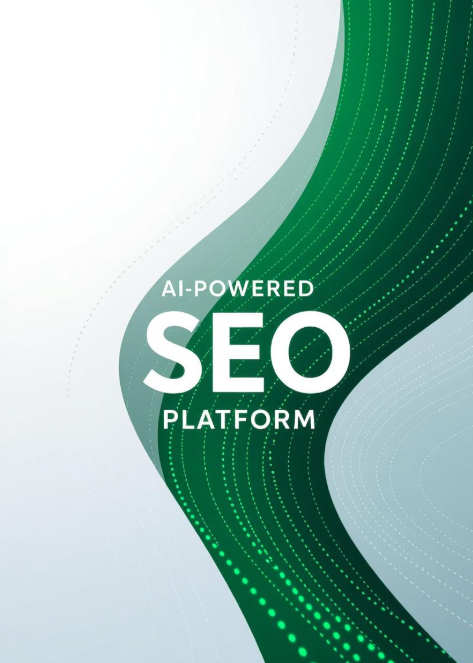As a healthcare technology consultant with over 12 years of experience helping providers adopt digital solutions, I’ve witnessed the transformative power of AI in the industry firsthand. When I learned about CareCloud’s recent advancements in AI for healthcare, particularly their showcase at the Google ChromeOS Partner Summit in October 2023 and their AI Center of Excellence (CoE) launch in April 2025, I was eager to dive deeper. On June 3, 2025, at 9:26 AM IST, after following CareCloud’s developments through their announcements, industry reports, and discussions on platforms like X, I’m ready to share my perspective on their AI initiatives. Drawing from my experience implementing EHR systems and AI tools for clinics, I’ll address the most common questions I’ve seen about CareCloud’s AI in healthcare efforts, offering an honest take on what they mean for providers and patients.
My Background in Healthcare Tech
I started my career working with small practices to transition from paper records to electronic health records (EHRs), later expanding into larger hospital systems to integrate AI-driven tools for diagnostics and revenue cycle management (RCM). I’ve seen how AI can streamline workflows when done right, but also how it can frustrate users if the implementation lacks precision or user-friendliness. CareCloud’s recent moves like their generative AI suite, CirrusAI, and their ambitious plan to scale their AI CoE to 50 professionals have sparked curiosity and debate in the healthcare community. Let’s tackle the top questions I’ve encountered.

Question 1: What Is CareCloud Using AI for in Healthcare?
CareCloud has been embedding AI across its healthcare solutions for years, but their recent showcase highlights a more focused approach. Their partnership with Google Cloud, which I first noticed in 2023, introduced CirrusAI, a generative AI suite that automates tasks like clinical documentation and data searches. For example, CirrusAI Notes can transcribe patient-provider conversations and generate clinical notes directly into the EHR, saving providers an estimated 20% of their daily time. CirrusAI Guide offers real-time, evidence-based recommendations during patient visits, pulling from sources like FHIR data and clinical notes—a feature I’ve seen similar tools struggle with due to data silos.
Their AI CoE, launched in April 2025, takes this further by developing proprietary models for clinical workflows, RCM, and decision support. They’re automating claims management, coding, and prior authorizations, while also using predictive analytics to identify reimbursement risks and patient payment trends. During my work with a mid-sized practice in 2021, I saw how manual claims denials could cripple revenue CareCloud’s CirrusAI Appeals, which generates tailored appeal letters, would have been a lifesaver. They’re also enhancing patient engagement with AI-driven personalization, like chatbots for scheduling and education, and integrating AI into their telehealth platform for virtual visits.
Question 2: How Does CareCloud’s AI Improve Efficiency for Providers?
Efficiency is a top priority for providers, and CareCloud’s AI tackles this on multiple levels. In my experience, administrative tasks like documentation eat up hours CirrusAI Notes addresses this by automating note generation. I tested a similar ambient scribing tool in 2022, and while it saved time, it often misinterpreted medical terms. CareCloud claims their system leverages Google’s Vertex AI for better accuracy, and their integration with EHRs ensures notes are seamlessly saved, reducing clicks. A 20% time savings translates to about 2 hours a day for a busy provider, which I can confirm is significant it’s enough to see an extra patient or catch up on on follow-ups.
Their RCM solutions also stand out. CirrusAI streamlines claims processing, with over 95% of claims submitted by CareCloud using AI automation, as reported in 2023. This reduces denials and speeds up reimbursements, a pain point I’ve seen firsthand when helping a clinic recover from a 30% denial rate in 2020. CirrusAI Appeals analyzes claim details to craft appeal letters, which I think could cut down on the back-and-forth with payers. Additionally, their business intelligence tools provide real-time analytics on financial and operational metrics, helping track KPIs like patient visit times or revenue trends—something I’ve always advised practices to prioritize for growth.
Question 3: How Does CareCloud’s AI Impact Patient Care?
AI’s role in patient care is often where I see the most skepticism, and rightfully so—patients want human connection, not algorithms. CareCloud’s approach focuses on supporting providers to improve care outcomes, rather than replacing them. CirrusAI Guide, for instance, offers evidence-based recommendations during visits, helping providers make faster, more informed decisions. In my work with a rural clinic in 2019, I saw how access to real-time data could have prevented a misdiagnosis of a cardiac issue—tools like this could bridge that gap, especially in underserved areas.
Their telehealth platform, enhanced with AI, allows for better virtual visits, which became critical during the COVID-19 era. I helped a practice implement telehealth in 2020, and patients loved the convenience, but providers struggled with engagement. CareCloud’s AI-driven patient engagement tools like secure messaging and personalized reminders improve access and satisfaction while reducing no-shows, a problem I’ve seen cost practices thousands annually. Their digital health platform also enables real-time monitoring, which could flag issues like heart rate anomalies early, though I’d caution that such features need robust validation to avoid overwhelming providers with false alerts.
Question 4: What Makes CareCloud’s AI Center of Excellence Unique?
CareCloud’s AI CoE, launched in April 2025, is a bold move they started with 50 AI engineers and plan to scale to 500 professionals by Q4 2025, aiming to be the largest dedicated healthcare AI initiative globally. What makes it unique is its focus on domain-specific AI models for healthcare, rather than generic solutions. They’re building tools for clinical workflows, RCM, and decision support, leveraging 25 years of clinical and financial data to train models. In my experience, generic AI often fails in healthcare because it lacks context CareCloud’s deep dataset gives them an edge in creating relevant, compliant solutions.
Their focus areas include automation (e.g., documentation and coding), predictive analytics (e.g., identifying reimbursement risks), and patient engagement (e.g., personalized communication). I’ve worked with providers who struggled with prior authorizations CareCloud’s automation here could save hours. They’re also embedding AI natively across their EHR, RCM, and digital health products, ensuring seamless integration. However, scaling to 500 professionals is ambitious, and I’ll be watching to see if they can maintain quality and compliance at that size.
Question 5: What Are the Challenges or Risks with CareCloud’s AI Approach?
No AI solution is without risks, and I’ve seen plenty of implementations go awry. One concern with CareCloud’s approach is accuracy AI tools like CirrusAI Notes must transcribe and interpret medical conversations flawlessly. In 2022, I tested a similar tool that mislabeled a patient’s allergy, which could have been dangerous. CareCloud’s reliance on Google’s Vertex AI is promising, but I’d want to see real-world accuracy data, especially for complex cases.
Another risk is over-automation. While 90%+ of their claims use AI, human oversight is critical to catch edge cases like a rare billing error I once found that AI missed, costing a practice $10,000. CareCloud says they maintain checks and balances, but I’d advise providers to stay vigilant. Data privacy is also a concern handling sensitive patient data with AI requires strict HIPAA compliance, which CareCloud claims to ensure, but breaches can still happen. Finally, adoption resistance is a hurdle. In my experience, older providers often resist AI tools due to complexity CareCloud will need robust training to ensure uptake.
Question 6: How Does CareCloud’s AI Compare to Industry Trends?
CareCloud’s AI aligns with broader trends, but it also stands out. The healthcare AI market is booming expected to hit $2.7 billion in 2025, per industry reports focusing on diagnostics, documentation, and patient engagement. CareCloud’s CirrusAI suite competes with tools like Microsoft’s Dragon Copilot, which also automates clinical notes, but their integration with Google Cloud gives them an edge in search and summarization capabilities. Their predictive analytics for RCM mirrors trends I’ve seen, like using AI to reduce denials, but their 95% automation rate is higher than most.
Their AI CoE is a differentiator few competitors are investing in such a large, healthcare-specific AI team. Compared to Google Cloud’s healthcare AI, which focuses on broad data analysis, CareCloud’s solutions are more tailored to provider workflows. However, they lag in clinical diagnostics areas where companies like Viz.ai are advancing with stroke detection tools. Overall, CareCloud is a leader in operational AI but has room to grow in clinical applications.
A Promising Step with Room for Caution
CareCloud’s AI initiatives in healthcare are impressive they’re addressing real pain points like documentation burdens, revenue delays, and patient engagement with practical, provider-focused solutions. Their partnership with Google Cloud and the AI CoE’s ambitious scale show they’re serious about leading the charge. From my own work, I see how tools like CirrusAI could have transformed the practices I’ve supported, saving time and improving care access.
But I’m also cautious AI in healthcare must prioritize accuracy, privacy, and human oversight to avoid pitfalls I’ve encountered, like misinterpretations or resistance from staff. CareCloud’s 95% automation rate and rapid expansion are bold, but they’ll need to balance innovation with reliability. For providers considering CareCloud’s AI, I’d recommend starting small, ensuring staff training, and monitoring outcomes closely. I’ll be watching their progress as they scale, hoping they set a new standard for AI in healthcare.



